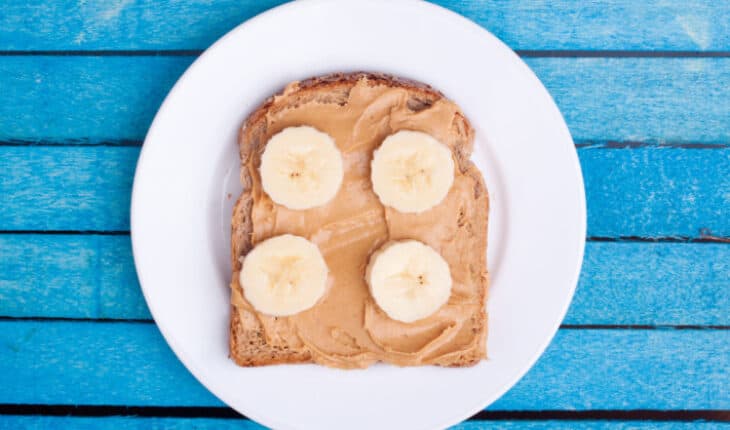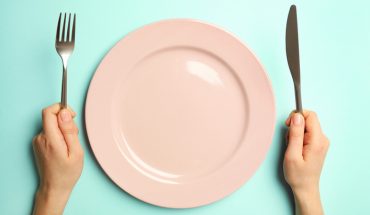Bite sized food hacks for students flying the nest: Providing well balanced, nutritious food is the cornerstone of parenting and something that will have become an absolute ritual in most family homes.
As children hit the teenage years, making your offspring a favourite breakfast or dinner can be an easy way to communicate our love. So, if your son or daughter is heading off to Uni this September, it’s natural to worry about what they’ll eat without your guidance, fully stocked fridge and culinary skills.
Here, we talk to Revive Active Brand Ambassador, Tina Lond Caulk AKA @thenutritionguru and author of the teenager’s guide to health and nutrition “Eat well, Feel Great” –who gives her 3 top tips to help your new student to do exactly that:
1. Snack sized advice for students
After the initial frozen pizza frenzy, most students do get into a routine (of sorts!) – driven by the need to refuel their body and mind to balance the demands of studying, socialising and living away from home for the first time. It can be overwhelming when parents have been responsible for shopping and meal planning until now – and panic can lead to poor food choices such as over processed snacks and ready meals. So, here’s are a few of my favourite nutrition tips, shopping hacks and recipe ideas:
• Think quick but healthy snacks to boost energy and immunity – try toasted multi seed bagels topped with peanut butter and sliced bananas, porridge with frozen berries or anything with eggs – omelettes, boiled, poached!
• Go old school for an easy dinner – baked potato (in the microwave is fine!) variety of toppings such as baked beans or tinned tuna mixed with chopped peppers, olives and tomato.
• Shop smart: most major supermarkets will reduce foods every day after 5pm – so look out for bargains! If there’s a freezer available, stock up to use throughout the term.
• Eat the rainbow – it’s simple, try to include as many brightly coloured fruits and veg in your daily diet as possible. Throw in an additional handful of key “colour” ingredients into pasta, a salad or sandwich – think red, green or yellow peppers, broccoli, fresh or tinned tomatoes, avocado, black or green olives, carrots or sweetcorn.
• Do the math – stick to this simple equation as a guide to balancing each “plate” – 50% fruit or vegetables, 25% protein and 25% fibre rich carbohydrates.
2. Dinner from a tin is no longer a sin!
Tinned food has always been a rich source of nutrients, with the canning process preserving most of the goodness – and has the huge advantage of remaining fresh for long periods of time – so are ideal for you to stock up on and put into that new term food parcel! Easy-to-use and versatile tinned foods for students to inject fibre and protein include kidney beans, lentils, chickpeas, processed peas, sweetcorn, chopped tomatoes, fruit (peaches, pineapple, satsumas etc – remember to choose “canned in water or natural juice” rather than syrup to reduce sugar intake).
DHA is a type of omega-3 fatty acid that is particularly important for brain and eye health. Fresh and canned tuna like tuna, sardines and salmon are good sources of several essential vitamins and minerals, including vitamin D, selenium, and iodine.
Of course, the cost-of-living crisis is hitting students hard this year and it’s not just tins that are a convenient and cost-effective source of nutrients – frozen foods including fruit and vegetables are normally more cost effective and can be used as and when needed.
3. Don’t discount supplements
At such as young age, it’s easy for new students to become low on vital vitamins and minerals which can contribute to a range of health problems such as tiredness, lowered immunity, low mood, poor concentration, memory and attention and exacerbate common skin issues like eczema and acne. I always say, “Think Food, First!” – food is information: it informs our bodies how to behave and affects our metabolism, immunity and how we think and feel. If you’re not feeling 100%, upgrading your diet with nutrients can help improve your mood, energy, skin and overall wellbeing.
However, even with the most well-planned diet, it can be difficult for adults to get all the nutrients they need. The quality of supplements is now fantastic – with many specially formulated, scientifically created products on the market which provide an array of vital nutrients at a relatively low cost. If you’re looking for some peace of mind when you wave off you loved one at the Uni accom, try packing a three-month supply of a high-quality brand such as Revive Active. Super supplement, Zest Active is designed for active young adults (18-34 years old) and contains a combination of 25 vitamins, minerals, beta glucans and amino acids which work in synergy to spark energy, boost immunity, support brain health, muscle function and hormonal activity. The daily sachets are super easy for students to take, just add 250-300ml water to a shaker, and drink first thing in the morning or take to the gym / lectures/ the library (delete as appropriate!).
About the author: Tina Lond-Caulk is a true force in the field of nutrition and wellness education. Known as The Nutrition Guru, she has established herself as a bestselling author (Bloomsbury publishing), a keynote speaker, and the founder of wellness education programmes for both corporate and school audiences. With an impressive 20-year track record as a clinical nutritionist and Director of her own health clinic, Tina has incorporated the invaluable knowledge and expertise of other top nutritionists to work alongside her at the practice. Tina’s qualifications as a degree-qualified Nutritionist are complemented by her post-graduate training in behavioural psychology and her specialist interest in genomics, all of which inform her holistic approach to health and wellbeing.
Comment provided by Revive Active Brand Ambassador (https://reviveactive.com /) Tina Lond-Caulk AKA The Nutrition Guru – Author, Speaker, Nutritionist (BSc Hons Nut.Med, mBANT, mCNHC, mFNTP)
- Gut microbiome could delay onset of type 1 diabetes - 3rd April 2025
- The da Vinci 5 Robot Is Set To Transform Bariatric Care: - 31st March 2025
- Beyond money: the hidden drivers fuelling child food insecurity - 31st March 2025






